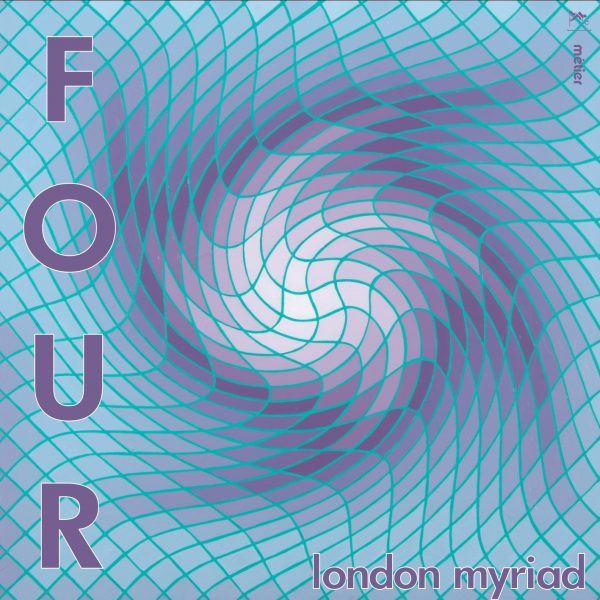Double Reed News
There is much to enjoy in this disc of six pieces recorded in 2014 and 2018. The playing is of the highest standard and the ensemble consistently excellent; not to be underestimated given the contrasting tones of the four wind instruments. If an objective was to show that some quartet repertoire is of a similar level to that available for wind quintet, it does highlight the significant gap. These may be the best quartets, but the addition of a horn seems to inspire composers onto a higher plane of composition.
A delight is the recording of the Deux Movements by Ibert. Here a grand master of the wind quintet shows that it is possible to produce a compelling quartet. The skill of the ensemble is a pleasure on the ear given that Ibert is so difficult to pull off. The many tempo and rhythmic changes in the Allant happen seamlessly; the four are having an engrossing, dynamic conversation! The lively second movement is a joy of rhythmic variety.
The Woodwind Quartet by Francaix will make you smile throughout. The enthusiastic precision of the playing is infectious; the allegro motto becomes more humorous as it evolves. This work by a 21-year-old was composed because the horn player was unreliable; thankfully 15 years later Francaix was ready for his first quintet!
For a flautist or oboist, the second movement duet, Nocturne, of Frank Bridge’s Divertimenti H.189 is worth absorbing. This movement was composed three years before the others and stands out as something that could be enjoyed in isolation, for example on Classic FM, with its haunting beauty and luscious playing. The CD comes with good notes that include a comment Bridge wrote provocatively to Britten in 1939: ‘They come off mightily well I’m glad to say. Which means I am quite pleased with them even if nobody else is!
Travel Notes 2 by Richard Rodney Bennett is described as ‘light’ music. Whether in balloon, helicopter or car-chase the composing is evocative, and perfect for this combination. A good piece to provide some contrast in a concert. The Suite en Quatre composed by Claude Arrieu in 1979 is interesting because it is so different from her wind quintet of 1955. Although the quintet is great fun for the listener, I found it difficult to be really engaged by this quartet, despite hearing it several times. The scherzo seems to lack sparkle and the presto not worth the effort; maybe it gives more pleasure to the players than the audience!
@divineartrecordingsgroup
A First Inversion Company
Registered Office:
176-178 Pontefract Road, Cudworth, Barnsley S72 8BE
+44 1226 596703
Fort Worth, TX 76110
+1.682.233.4978
We noticed you're visiting from Latvia. We've updated our prices to Euro for your shopping convenience. Use Pound sterling instead. Dismiss




![🎧 Listen now to the @purcellsingers' first single from their upcoming album, #ASpotlessRose! ➡️ listn.fm/aspotlessrose [in bio]](https://scontent-dfw5-2.cdninstagram.com/v/t51.71878-15/642752592_1424641949105789_8815810652567824072_n.jpg?stp=dst-jpg_e35_tt6&_nc_cat=106&ccb=7-5&_nc_sid=18de74&efg=eyJlZmdfdGFnIjoiQ0xJUFMuYmVzdF9pbWFnZV91cmxnZW4uQzMifQ%3D%3D&_nc_ohc=aY1NGfNpOoYQ7kNvwEXZYzC&_nc_oc=AdlbjDz3zyFj5WLfX1Q9_OAPAiCLbWmMjzwtsYrQ0yDIv8RWk7cfWBAbqds2XLjHl64&_nc_zt=23&_nc_ht=scontent-dfw5-2.cdninstagram.com&edm=ANo9K5cEAAAA&_nc_gid=aKOGd4IcCy-qJ2MTgnncVQ&_nc_tpa=Q5bMBQFVZOrw38QL7XAUFlXey3Mc-NOtBZt8Qmvk_N2toL7D2T42jvNEQs1gt2JruVmdoUNkDKWZJCyz7g&oh=00_Afw2_aI3ATMncYANNAJzjdeCnqwAEILkf93PsW-D0srfRw&oe=69AE2BC1)







